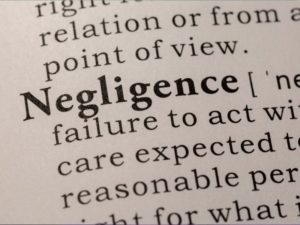
It’s natural to expect full compensation if you’re hurt in an accident caused by someone else. However, many claimants are disappointed to get low settlement offers when the opposing party argues they are partly to blame for their injuries. In cases of shared fault, Michigan follows a modified comparative negligence model to award compensation to injured individuals.
Modified comparative negligence matters because it could reduce your ultimate financial award significantly. Under the law, your compensation will be reduced according to your percentage of fault for the accident. The problem is that fault is usually assigned by an insurance adjuster, judge, or jury. Without an experienced personal injury lawyer to defend you against unfair claims of fault, you could be vastly under-compensated.
To help you pursue the best possible outcome for your claim, turn to Christensen Law. Our Michigan personal injury lawyers will fight for you to be compensated fully and fairly. We won’t let insurance companies take advantage of the modified comparative negligence rules to benefit themselves.
When you choose our firm, you can expect us to leverage our knowledge and resources to build the strongest possible case for you. Let us handle all the details of your claim so you can focus on getting your life back after a devastating injury.
Call or contact us today for a free consultation.
Contributory Negligence vs. Comparative Negligence
Historically, Michigan used the contributory fault model to apportion fault in injury claims. This harsh rule prevented injured individuals from collecting compensation if they were even slightly responsible for the accident that hurt them.
In recent decades, Michigan and many other states have moved away from that model to the comparative negligence, or comparative fault, rule. In a comparative fault system, liability for losses due to injuries and property damage is allocated according to the share of fault of each party. This includes the injured victim. Although it’s not perfect, a comparative fault system is considered more plaintiff-friendly because it allows for some recovery in cases of shared blame.
Modified Comparative Fault
Comparative negligence rules come in one of two forms: pure comparative negligence or modified comparative negligence.
In a pure comparative negligence system, no restriction is placed on an injured party’s ability to seek compensation, no matter what their share of responsibility may be. For example, even someone who was 90 percent at fault for an accident can still pursue compensation for their injuries and losses from the party who bears the remaining 10 percent of fault.
By contrast, a modified comparative negligence system limits the share of fault that an injured party can have before they are barred from receiving compensation. This threshold varies but is expressed as the “50 percent” or “51-percent” bar.
Michigan and the 51 Percent Rule
In Michigan, you can receive compensation as long as you are not found more than 50% percent or more at fault for an accident. In other words, your share of the blame must be equal to or less than the other party’s portion of fault to recover money.
How Does Michigan’s Modified Comparative Fault Affect My Claim?
If your share of fault is found to be less than 51 percent, the amount of compensation you receive will be reduced in proportion to your percentage of fault.
For example, let’s say you were injured in an automobile accident where you sustained $100,000 in losses. You are later determined to be 25 percent responsible for the incident. Under Michigan’s comparative negligence system, your $100,000 recovery would be reduced by $25,000. Your final award would be $75,000.
But, if you are more than 50% at fault then you cannot obtain any damages for your pain and suffering. You would still be able to obtain damages for your lost wages and medical expenses, if applicable.
As you can see, a lot of money may be on the line if someone disputes fault in your personal injury claim. Having experienced legal representation in your corner may prove critical to secure maximum compensation for your losses. An aggressive personal injury lawyer will push back against the other side’s efforts to minimize their liability to you and gather the evidence needed to persuasively establish fault for the accident and your injuries.
Get Help from Christensen Law
Are you being blamed for an accident that’s not your fault? Don’t let your right to maximum compensation slip away without a fight — get Christensen Law on your side.
Our Michigan personal injury lawyers have decades of experience negotiating with stubborn insurers and defense attorneys who do their best to push fault onto injured people just like you. We won’t let your claim be diminished. Contact us today for a free, no-obligation consultation today.





